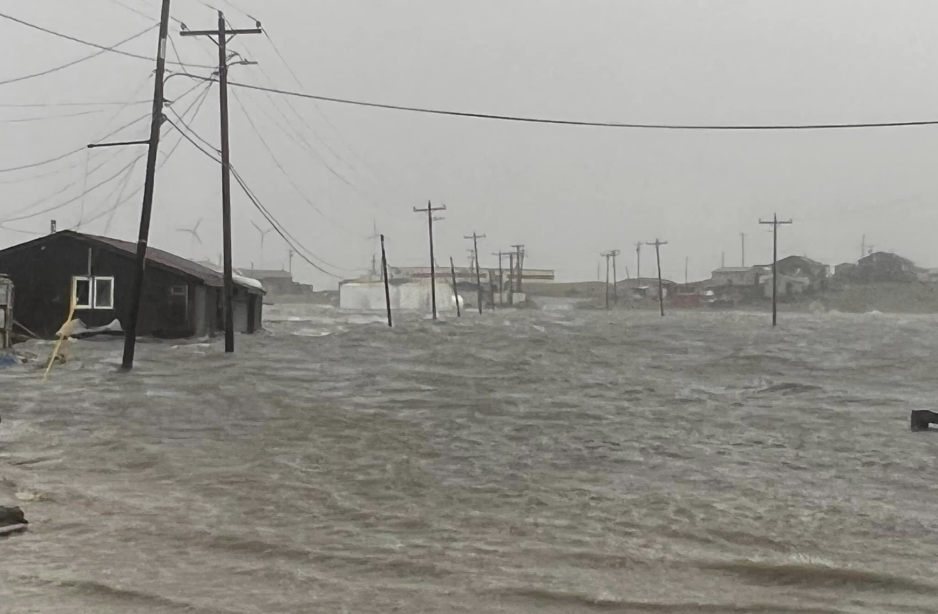Newsletter: Climate Change Leads to New Rules

The storms are hitting Alaska's population more frequently. The remnants of Pacific Typhoon Merbok reached coastal Alaska on Friday, resulting in devastation and flooded streets in Hooper Bay, Nome, Alaska. (Photo: Ervin Chayalkun)
It is windy in the Arctic, in more ways than one. Climate change is wreaking havoc in Alaska and Russia is practicing defense in the North, as well as upgrading their bases and radar stations.
Next week, Editor-in-Chief Arne O. Holm was supposed to travel to Nome, Alaska, but his plans were changed. Climate change put a stop to the trip to the roadless gold mining town where a powerful storm hit Alaska's western coastline last weekend.
Warming oceans as a result of climate change contributed to the storm’s severity, says researchers.
Increased presence
There is no doubt that the Arctic is an important area for Russia, and less sea ice also means that it is now possible to sail in areas that were previously inaccessible for large parts of the year.
For the past decade, Russia has systematically expanded and strengthened its Arctic military through a combination of bases, airfields, and large-scale radar installations, as well as defensive and offensive weapons systems.
How will the war in Ukraine affect Russia's capabilities in the region and what challenges do Norway and its allies face in the Arctic?
"The High North is a prioritized area for the alliance," says the Chief of the NAOC at Reitan.
Better connectivity
"This contributes to show that Norway is serious about its High North Policy," says the program director in the state-owned company.
Thank you for following us and feel free to share the newsletter,
Trine Jonassen, News Editor
This newsletter has been translated by HNN's Birgitte Annie Molid Martinussen

